Fall 2022 / Spring 2023



Special Issue





















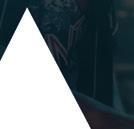






Fall 2022 / Spring 2023



Special Issue










































This summer, you’re invited to stay on campus for an exciting semester of engaging activities, unique face-to-face courses and more!
Take advantage of this unique opportunity today!
Register by May 18, 2023
HIGHLIGHTS
• Student employment opportunities
• Save 20% on tuition for summer courses

• Complete your degree sooner
• Enhanced campus activities
• Discounted housing
• Tutoring available
SUMMER COURSES















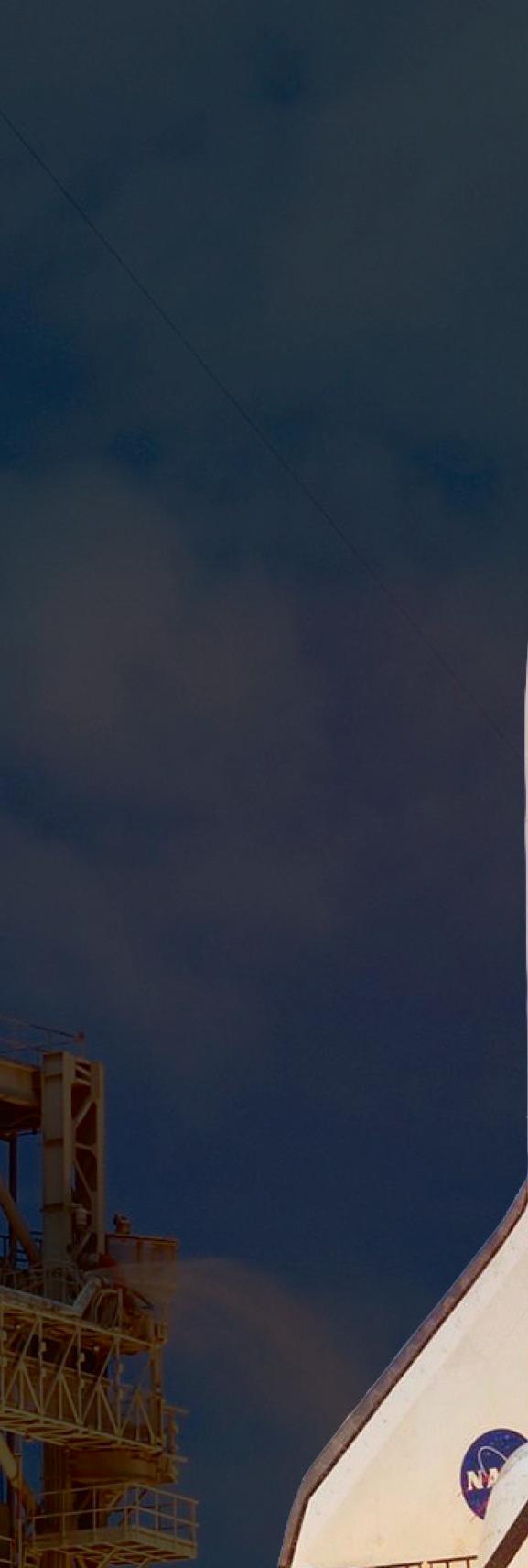















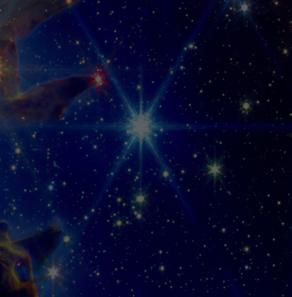













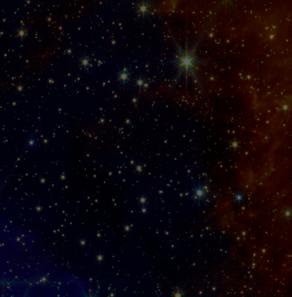






























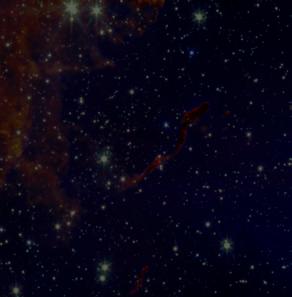


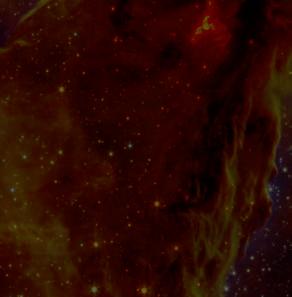








 Student Alisa Tiselska presenting her research project
Student Alisa Tiselska presenting her research project
“It’s great recognizing new classmates, working with them and continuing to learn our careers day in and day out,” Joe Pavicic, Class of 2011, says. “It adds a layer of camaraderie unlike anywhere else, knowing we all earned our engineering skills at Embry-Riddle and are now carrying the torch for the Artemis program.”
As an aerospace engineer, Je had the opportunity to work on several aspects of the Artemis launches, including developing the so ware for the Launch Control System and helping to monitor the MPS hardware and operations.
Je says, “My department covered all of the uids systems for Artemis, and I have had the unique opportunity to contribute to most of those systems, gaining a variety of valuable experiences and knowledge through every single one.”
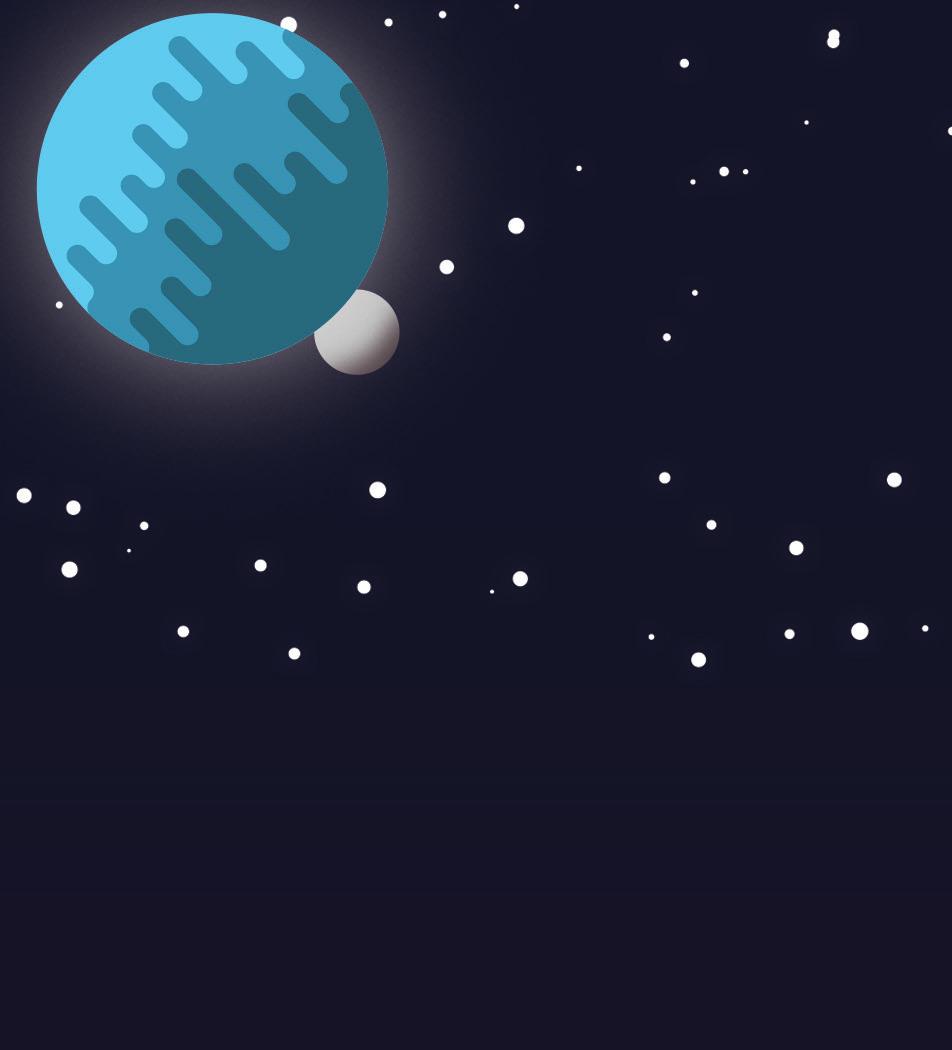
Je interned at Jacobs through a summer internship this past summer. at internship will eventually turn into a full-time job that continues his legacy at the Kennedy Space Center.

“SLS is the largest and most powerful rocket in existence and the Artemis program is the greatest application of













minds, resources and international cooperation in the history of humanity,” Je says. “I have a unique perspective from my position as an engineer.”
As an engineer, Je has a rsthand view of the innovation, changes, and progress within the aerospace industry. He not only knows how the rocket systems work, but how the internal systems among space companies and agencies work. With his engineering eye at the view nder, he brings the work at KSC into focus for the rest of the world to see.
Joe Pavicic (left) and Je Ochoa-Orozco (right) presenting the ag of their fraternity, Pi Kappa Alpha (PIKE), in front of the Artemis I launch vehicle on August 11, 2022Harrison Simmons works for the cargo airline Freight Runners Express, and is a captain on the Beechcraft 99. I met Simmons during my first semester at EmbryRiddle. He has taken a unique path after obtaining his instrument and commercial license at Embry-Riddle and leaving Daytona Beach. I sat down for an interview with him to unpack the aspects of this unique operation fascinating.
The Avion (TA): How did you enjoy your time at Embry-Riddle?
Harrison Simmons (HS): I made some great connections at Embry-Riddle and enjoyed my time there. I worked hard and got my instrument and commercial done in my first year and after that I decided that Worldwide was a better option for my situation. It was shortly after this decision that I started flying for Freight Runners.

TA: What are some pros and cons of working for Freight Runners?
HS: Small companies are nice because you know everyone and every airplane. The pay is extremely competitive for a Part 135 cargo operation, and they are very welcoming of young pilots that do not meet the age minimum for both the restricted and full ATP. For Part 135, a full ATP is only required for passenger operations in large (transport category) turboprops, so it’s not unheard of for us to have 20 year old captains here.
TA: How do you like captaining the Beechcraft 99?

HS: The 99 is a fun airplane, very easy to fly and ours have arguably the best avionics in the industry. I’m fortunate I did my multi engine add-on in a Piper Seneca, so I was used to not having FADEC, which isn’t included on beechcraft turboprops like the King Airs or 99s.
TA: Was it tough adjusting to the lifestyle?
HS: The toughest adjustment I noticed was trying to adapt my sleep schedule to whatever trip I’m on. For example,
one morning I could be working a short 45 minute UPS route at 7 am, and then that night at midnight, I would be working an on demand charter trip until 7 am the next day. While it can be a challenge at first, after a bit of time it becomes pretty easy.
TA: What does a typical flight look like for you?
HS: At Freight Runners, we have a diverse operation - the Beechcraft 99s fly UPS feeder routes, as well as ondemand charters quite regularly. Every night, we also fly lab tests across the country where we fly well over 1000 miles per night.

That being said, there is no typical flight, which I find makes flying here quite interesting. I’ve flown as far south as Alabama nonstop, and covered most of the east coast in a 99, all while operating out of the Midwest.
In addition to the Beechcraft 99s, Freight Runners is one of the largest operators of both the Embraer 120 and SAAB 2000. These are used for cargo and passenger charters across the US, Mexico, Canada, and the Caribbean.
TA: What is next for you?
HS: I’ve been offered a training date this year to be a captain on the Embraer 120 here at Freight Runners. I’m planning on staying to fly the Embraer for the foreseeable future.
I don’t meet the age minimum for an ATP or Restricted ATP, so it is a great opportunity for a young pilot like me to get ahead.
The National Society of Black Engineers (NSBE) is one of the largest student-governed organizations based in the United States. Founded in 1975, NSBE strives to support and promote the aspirations of collegiate and precollegiate students and technical professions in engineering and technology. NSBE envisions a world in which engineering is a mainstream word in homes and communities of color, and to exceed parity in entering engineering fields, earning degrees, and succeeding professionally. With more than 600 chapters and more than 24,000 active members in the U.S. and abroad.
The National Society of Black Engineers has its own chapter at Embry-Riddle Aeronautical University, which involves a community of African American and other minority ethnic groups, with 45 active members just from the Fall 2022 semester, statistically growing every semester.
Aiming to cover all aspects of the mission, for our members, to “excel academically, succeed professionally, and positively impact the community.” Creating an environment where student engineers can advance their professional and academic skills was proven through the events hosted during the Fall 2022 semester.
The organization has a vast involvement with many special guest speakers and large companies. In Fall 2022, NSBE had the opportunity to exclusively host a Textron Informational Panel, a Collins Aerospace General Body Meeting, a special guest speaker from Boeing, an “Apply–A–Thon” with
Collins Aerospace, and a special guest speaker from Cadence Design Systems.
Introducing their major presence to NSBE’s first fully in-person Fall Regional Conference under NSBE Region III
“POW3RHOUSE,” Embry-Riddle’s NSBE Chapter was able register 33 members to the conference taking place in Atlanta, Georgia in early November. The regional conference involved many professional workshops, various special guest speakers, an academic bowl, career fair, and more. The chapter even got a unique opportunity to network with Collins Aerospace themselves.
Members enjoyed the views of downtown Atlanta while speaking all things engineering. At the career fair, members were able to participate in networking and seek out many opportunities. Students were able to receive on-the-spot interviews, and notably 2 members received Co-Op offers from Collins Aerospace alone.
Speaking of conferences, ERAU’s chapter attended NSBE’s Annual Convention in Spring 2022. This was an event for all chapters to come together for a national conference, and was held in Anaheim, California. There, NSBE’s ERAU chapter was able to attend with 11 members and resulted in an astounding 81% of attendees receiving offers from several large companies including Boeing.
ERAU’s on-campus chapter was also able to support many social events during the 2022 calendar year. They coordinated with many other Registered Student Organizations on different
events. These included a Kennedy Space Center tour with the Experimental Rocket Propulsion Lab (ERPL), a movie night to watch Black Panther: Wakanda Forever with other ERAU African American organizations (BSA, ASA, OBAP) and at the beginning of the Fall 2022 semester, NSBE and ASA collaborated to start off the semester with a barbeque event.
NSBE leaders were also able to represent ERAU at a Diversity and Inclusion Roundtable session during Boeing Week. In closing, there are many additional events outside of the general body meetings that NSBE supports, such as the NSBE Halloween event.
Other regularly occurring events to fulfill NSBE’s mission include monthly volunteering events to positively impact the community, numerous professional/technical workshops and an alumni panel, to help students excel academically with weekly study sessions.
Additionally, a mentorship program in coordination with Mainland High School was spearheaded to provide mentorship opportunities within the chapter. Lastly, the organization is hoping to bring hands-on engineering projects for the general body by the spring semester.
The National Society of Black Engineers is a welcoming organization that can lend a home to any majors. Their general meetings are every Wednesday at 6:00pm in COAS 206. For any updates be sure to follow their Instagram, @erau nsbe.










When people get their Bachelor’s degree at Embry-Riddle, they are most likely to get a job after graduation as they bid college goodbye forever. However, some people stay behind to get their Master’s degree, or even their PhD.
Do they do it because they believe it would help them get higher paying jobs down the line, or do they simply wish to challenge themselves academically?
Once they start their post-graduate program, is it much more difficult than undergraduate programs or is it just another few years of the same things all over again?
Is being a grad student vastly different from an undergrad, or is it all the same? In order to answer these questions, I’ve interviewed three students who are all currently enrolled as Master’s students in Aerospace Engineering.

The students stated that when they first entered the Master’s program at Embry-Riddle, one sharp difference they noticed from the undergrad courses is that the way the classes are structured. The classes tend to focus more on specialized topics; as opposed to undergrad courses that focus on broader topics based around one’s degree. They stated this is due to the Master’s program mostly functioning as a way to prove that one could conduct research, and create their own thesis. The classes are focused more on understanding the course materials on a conceptual level, instead of studying the processes of various course materials.
When it comes to the class difficulty, the students said that Master’s programs tend to be a case of give or take. While the class materials may be harder to understand on a conceptual level, the professors, themselves, can to be less
harsh when it comes to grading. As a result, you’ll feel less restricted by work as compared to undergraduate courses. It appears that in terms of academics, being a Master’s student is a great way to study the subjects you are passionate about in your degree.
When it comes to the social aspects of being a Master’s student, it’s a give or take situation. You will be attending classes surrounded by peers who share the same academic passions as you, but there will be significantly fewer students per class. This means that as a result, you may feel that your friend groups have been reduced to a quarter of what they used to be. To remedy that, you will also be able to work closer with others on projects more often than you did in your undergraduate classes. And though you may not have as robust of a social life as you had as an undergrad, the quality of friendships is still there.
At the end of the Fall 2022 semester, the Eagles Flight Team won the championship of the National Intercollegiate Flying Association (NIFA) Regional SAFECON competition, as well as the Ground Event Champion, Flight Event Champion, and Competition Safety Award.

Representing the Embry-Riddle Aeronautical University Daytona Beach campus, this is the 40th time that the team has won this championship competition against fellow collegiate aviators from the southeastern United States. While winning became routine and trophies stacked to the roof of the Flight Operations Building, a question was raised: what’s so special about this specific victory? With our history of success, earning another regional championship should be a walk in the park, shouldn’t it?
“Maintaining team readiness can be difficult in this environment,” said Nicholas Kellogg, the safety officer of the team, who is a Spaceflight Operations sophomore. “Each year, our most experienced individuals leave for their careers, and we must recruit new members to take their place. Training is something we take very seriously. In order to maintain a sharp,
competition-ready team, we must ensure that the members are diligently working not only on their ground events, but their flying practice as well. We are looking to improve year over year. This year we have some fantastic new recruits who are already working on being the best they can.”
Every Fall, the Eagles Flight Team invites new members into the team. Like the competitive sports teams, the team holds a three-week tryout where prospective members can get a taste of the practice. In contrast, senior members can observe the performances and potentially make selections among the tryouts.
The flight team is known for operating a fleet of three unique Cessna 150s optimized for precision landing competitions. However, not known by many people, the NIFA competition also requires teams to participate in ground events, which are, if not more, as important as flight events, while weighing the scores for the overall championship. During the tryout process, prospective members are exposed to the three core ground events: Simulated Comprehensive Aircraft Navigation (SCAN), Computer Accuracy, and Aircraft Recognition.
“Simulated Comprehensive Aircraft Navigation is an event based around cross-country planning and regulation knowledge. Computer accuracy utilizes the manual E6B flight computer to solve complex maths problems. Aircraft recognition tests you on your ability to identify aircraft’s make, model, and common name in only a few seconds.”
Connor Cvetan, the first officer of the team, explains the ground events: “We spend at least three nights every week dedicated to practicing those core ground events, independent of our flying and practices. Many times, new members need to be introduced to these events from scratch.”
“Practice is pretty intense,” said new member Charles Brouwer, an Aeronautical Science freshman, who has just been introduced to the flight team practice routines. “I was studying as hard as I could, and I am now focusing a considerable amount of time on the flight team practices.”
It usually takes a new team member about a year to master one ground event. In that process, the team member transitions from a safe pilot to a safe but precise competitive aviator. If they demonstrate mastery of their ground event and good aviation and safety skills, they will be invited to join the practice for flight events.


“NIFA dictates the rules to which we fly, making certain flight events far stricter than the commercial ACS,” said Dominic Barbagallo, Chief Pilot of the team. “Training a new member to fly in accordance with these rules is difficult, because many are not used to the added restrictions! We don’t teach landings, we perfect them!”
“It might be challenging for the junior members to quickly get to a competition level for the ground and flight events, but we have our secret,” team Captain Aidan Murray, an Aeronautical Science senior, shared his insight. “Through not only rigorous practices, but also mentorship programs, senior members can efficiently pass down their skills and experience to junior members, promoting more effective learning.”
“I was taught almost everything I needed to know,” said new team member Garrett Linney, also an Aeronautical Science freshman, elaborating on his tryout experience in October. “We also quickly created tight bonds and strong friendships.”
“Practicing is hard but also fun!” This was Connor Cvetan’s response; he also won the Top Ranking Contestant award in the regionals when asked to reflect on his practice experiences. “There is a sense of achievement when you solve a question. And, of course, the excitement of being called during the award banquet is unforgettable.”
“Another part of the recipe is that we understand we represent not only ourselves, but also our university in front of other fellow collegiate aviators and even the industry,” Aidan added. “There is an internal driving force for us to hold each other accountable for achieving our best.”
The hard work does not stop with the regional victory, as the 2023 SAFECON National Competition is just around the corner. In May, the Eagles Flight Team will be traveling to Oshkosh, Wisconsin, to compete against other collegiate aviators from across the nation. Let’s wish them all the best!

































When most people applied to college, their parents probably bugged them for hours to enroll in their alma mater. However, that was not my case, as unlike a good chunk of my peers, I was the rst person in my family to enter college. As a rstgeneration student, my unique rst-generation student journey consisted of good and bad experiences. With this article, I want to share with you, my dear reader, what it is like to be the rst person in my family to enter college.
First, I would like to start with the bad aspects of being a rst-generation student. I want to get the worst parts out of the way before transitioning to a much more hopeful aspect. One big issue with being a rst-generation student is the constant back-and-forth arguments you need to have with your parents, who may not understand the more taxing parts of college. is one isn’t meant to be a jab at one’s parents, but, due to rst-generation students’ parents not understanding a lot about college, it can create a lot of unnecessary stress. Most of the time, you tend to feel that you are entering an unknown world with no one to explain it to you.
Another horrible part of being a rst-generation is that you tend to be le out of all of the nancial bonuses associated with being the child of an alumni. Because of this, you tend to feel that you have to deal with the bur-



den of college by yourself, especially when you compare yourself to your peers, receiving alumni bonuses.
Now that I’ve shared the bad aspects, I would like to say there is hope for rst-generation students at the end of the tunnel. One big advantage that rst-generation students have, that can counteract one of the previously stated disadvantages, is that we can apply for scholarships, fellowships, and internships that might be unavailable for non- rst-generation students. Another signi cant aspect of being a rst-generation student is that you feel like someone who could break the mold. Your family treats you like a star child, and college isn’t just a regular four-year academic plan like everyone else. It’s a pilgrimage you go on to prove that you, and by extension, aren’t just tied to yours but go beyond them and achieve greatness. is feeling is something I feel deep within my heart every day now that I’m a senior.
To all the rst-generation students reading this, remember that, although you will have challenges that the rest of your peers may never experience when you earn that diploma, you will become more than just another member with a college degree. You will become someone who, despite everything, made a di erence for themselves and their family.



 The conference delegation at MediaFest22 in Washington, D.C.
The conference delegation at MediaFest22 in Washington, D.C.
Many students don’t come to Embry-Riddle to pursue a study in Communication. In fact, many students are not aware that the University offers a Bachelor of Science in Communication. However, it is true. Embry-Riddle has around 20 students pursuing a degree in Communication, and I’m one of them.

When students attend Embry-Riddle, it usually is because they have a passion for aviation and air sciences. The majority of Communication majors still share that passion. Not only do we have the option to study Communication, but we can also study Aeronautical Studies, Aviation Safety, Business Administration, Human Factors, Space Studies, and Marketing like everyone else.
However, we want to take our passions and help communicate them in a way the public can also understand. What’s the point of gaining knowledge in a field of study if a person can’t efficiently share it with the public? A communication major’s job is to transcribe the jargon and technical knowledge and translate it to an audience in a way they can understand.
In my case, I study Broadcast Meteorology; I’m looking for a job where I can decode weather phenomena in an easily understandable way. I don’t
have a minor like a majority of my colleagues. Instead, I’m in a specific program. By majoring in Communication, I can have a Meteorology concentration to purposely learn how to broadcast meteorology to a mass audience.
When I learned about this program, I was ecstatic because I realized I could study my specific area of interest. My original plan was to attend Florida State University to obtain my Bachelor’s in Meteorology and my Master’s in Communication/Journalism. With this program, I can kill two birds with one stone.
I take all the weather-related classes that meteorology majors take and communication classes to help me learn how to share my understanding of weather. My favorite courses have to be the ones where I get to work in the broadcast studio on the third floor of the College of Aviation. That is where I’m at my prime.
I can promise you that being a communication major isn’t a waste of time or money. It is a vital career path for those who want to take STEM-related work - something all EmbryRiddle students are passionate about - for people willing to help others understand and develop a passion for science.

Fine, I’ll spill them as long as no one copies our idea! Cuban co ee is a type of espresso from Cuba, sweetened traditionally with natural brown sugar and whipped. Cuban co ee requires patience, love, and feel; Latino Pilots Association-styled (LPA) Cuban co ee is also a product of innovation, brewed fresh — usually every Tuesday — at the Student Union. We start by brewing Bustelo in an induction oven-compatible Moka pot and separately adding raw brown sugar in a measuring cup. How much, you ask? Again, we do it by feeling! Once the pot is brewed, the patience part begins. Ever so slowly and slightly, we start adding the co ee to the cup while getting the sugar slightly moist while stirring constantly. You keep stirring and adding co ee by the drip until you get a frothy and creamy consistency. at way, it looks like a milk co ee without the milk!
It has taken on a life of its own as our fundraising Magnum Opus and part of our identity. It’s the cafecito that could! As for our members, I’d say our co ee sales have impacted the buyer more than the seller. ough that’s not to say it hasn’t impacted us at all. We’ve gained marketable skills in brewing, selling, and advertising. And for some of us, selling co ee gives us the polar opposite e ect of that of the consumer; we feel more relaxed and disconnected from the day-to-day realities of being a Riddle student. It’s as if real life stops for a moment when we sell what is a life accelerator for many people.



To us? e LPA represents the tripartite — family, tradition, humility — and El Momento Hispano. e former is the three things Hispanics usually value most, especially those of us who have just arrived in the United States.

Ancient LPA lore tells of the times of yore, when the group was still a mere pequeñín, in a di cult and transitory period. Members Nasir ‘Paco’ Martinez and Fabian Torres came up with the idea of selling Cuban co ee during a brainstorming session that included other ideas that did not materialize. Co ee was what stuck the most. anks to member Paco’s culinary expertise, we’ve been able to keep it as traditional and high-quality as possible, passing the recipe down from member to member, with slight tweaks to keep up with demand.
Our co ee, especially this semester, has been a bit of a sleeper hit and cult classic on campus, something we didn’t anticipate for something so simple and humble. It got mentioned by Riddle Regards, praised in the most Gen Z fashion as ‘bussin’.
e latter is a concept — not of my own making — dealing with the reality of Hispanics in America. We are a young and burgeoning demographic, and it is our time — our moment if you will — to shine and add sazón to the American melting pot, to make our presence known and our culture felt. And I believe that a humble cafecito, the same cafecito that started the Daytona Beach LPA’s resurgence, is the start of that. is co ee represents who we are as a people: humble and tied to our traditions, never forgetting where we came from and never forgetting what we’re here to do.
We’re here to give the Daytona Beach community the love, the patience, and the feeling many — myself included — need whenever we feel down and overwhelmed by the realities of being a Riddle student…
...Now where have we seen those three things before?
What happens when you combine a group of rst-year students whose only common ground is their love for aviation and a prestigious private university? Hopefully, they will experience the sense of community seen by the residents of the h oor of Wood Hall.



eir familial-like bond began when a resident named Noel Bell knocked on other residents’ doors to bring them together for the get-to-know-you event put on by their Resident Advisor (RA), Alexis Bondarenko. Almost immediately, it became obvious to the residents that there was enough of a bond between them to form a tight-knit, continuously engaged community.
e oor is so close that, since the rst week of the Fall 2022 semester, the residents came together to give each other their call signs. Individual call signs include, but are not limited to: GI (Johanna Archbold), Silence (Joshua Stelmack), Ranger (Landon Barclay), Spaniard (William Burkett), Wildcard (Ti any Smith), and Rocket (Nathaniel Wrobel). Noel,
mentioned previously, has the call sign Achilles, their RA Alexis is Alpha, and the author of this article is known as Media.

e residents come from a variety of backgrounds and are pursuing a variety of majors. But that doesn’t prevent them from bridging the gaps and having a good time. Such bonding events include watching sporting games on the lounge’s television, late-night runs to One Daytona’s arcade, tea party hangouts in the lounge, and, most notoriously, their Wood Hall Five podcast.



e podcast allows the oor to share their rst-year Embry-Riddle experiences with incoming students who have questions about what to expect. Topics to be discussed on the podcast include dining experiences, residence life, classes, and an interview with their RA. ey even plan to have an episode solely devoted to the Aeronautical Science residents talking about the pilot’s experience at ERAU. e podcast is available to listen to on
Want to see more photos like these? Check out Wood Hall
Five’s Instagram by scanning here.



































